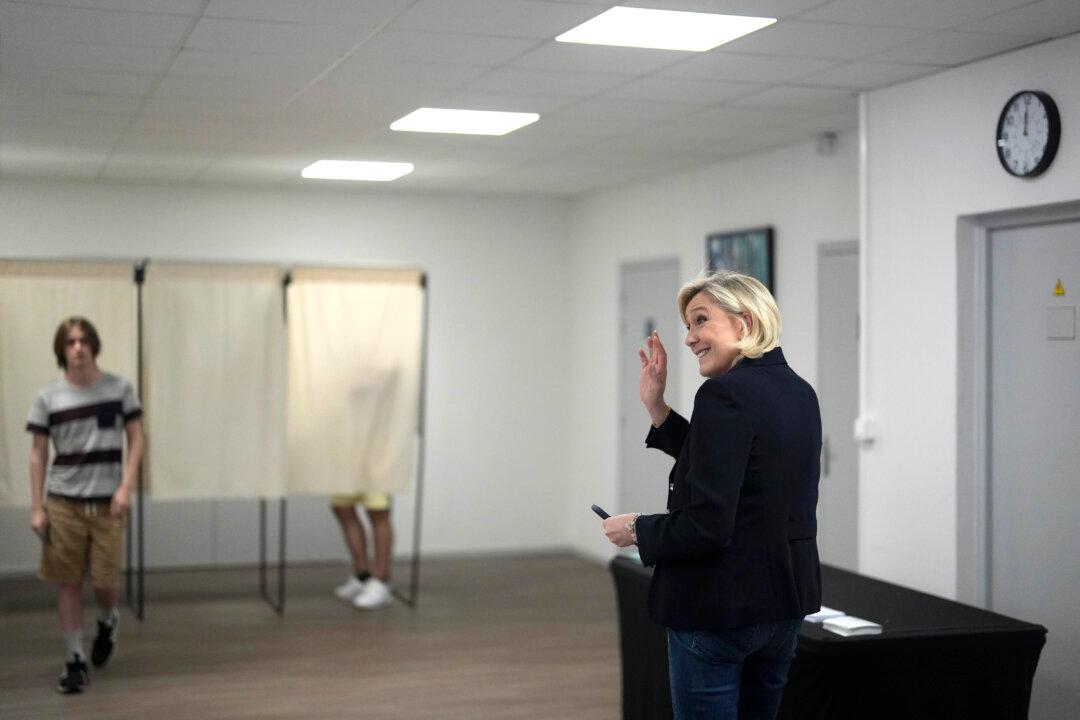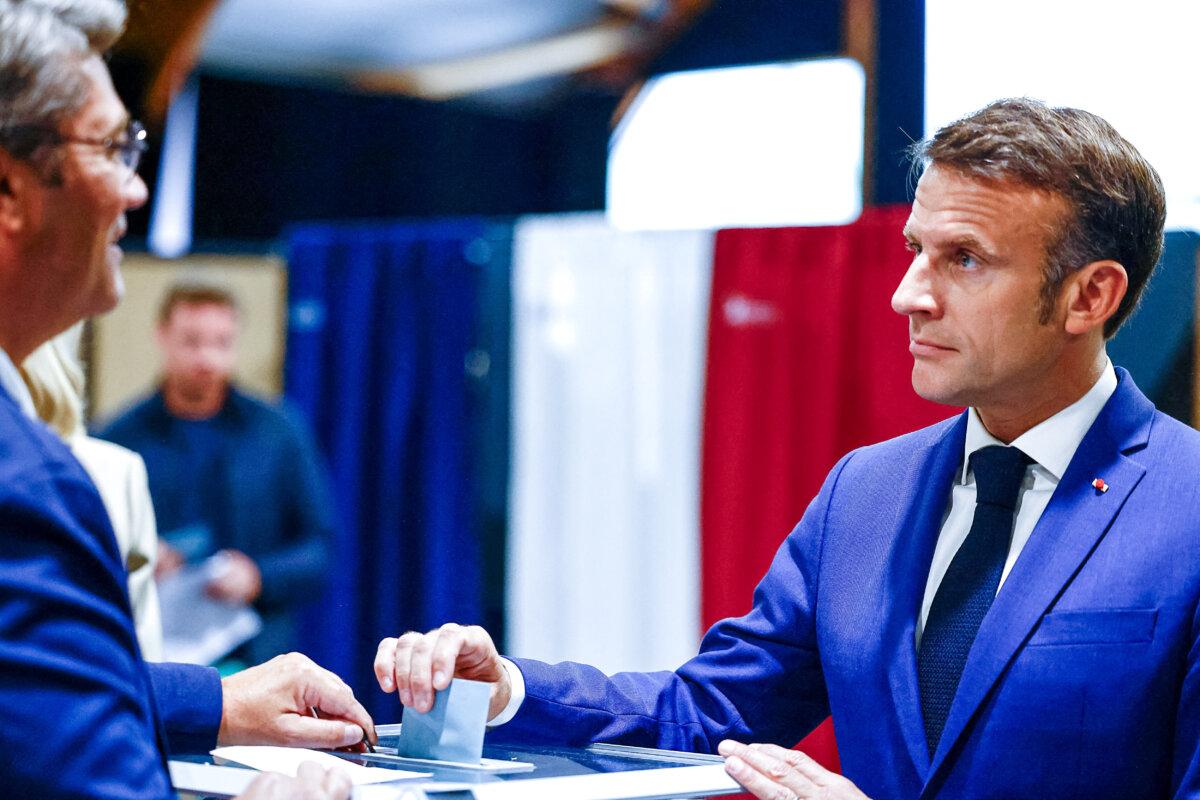Marine Le Pen called on voters to give the party an “absolute majority” at parliament.
French polling agencies indicated that President Emmanuel Macron’s grouping of centrist parties could finish a distant third in the first-round ballot. Their projections put Mr. Macron’s camp behind both Marine Le Pen’s National Rally and a new left-wing coalition of parties.
Ms. Le Pen called on voters to give her party an “absolute majority” at parliament. She said a National Rally majority would enable the conservatives to form a new government with party President Jordan Bardella as prime minister in order to work on France’s “recovery.”
Projections by polling agencies suggest the National Rally stands a good chance of winning a majority in the lower house of parliament for the first time, with an estimated one-third of the first-round vote, nearly double their 18 percent in the first round in 2022. The party is building on its success in European elections that prompted Mr. Macron to dissolve parliament and call the surprise vote. The second round will be decisive but leaves open huge questions on how Mr. Macron will share power with a prime minister who doesn’t agree with most of his policies.
The two-round elections will wrap up on July 7.
Many French voters are frustrated about inflation and economic concerns, as well as Mr. Macron’s leadership, which some voters see as out-of-touch with their lives. France’s ongoing support for Ukraine is another issue on the table. Marine Le Pen’s nationalist National Rally party has dominated all pre-election opinion polls.
A new coalition on the left, the New Popular Front, is also posing a challenge to Mr. Macron and his centrist alliance Together for the Republic.
There are 49.5 million registered voters who will choose 577 members of the National Assembly, France’s influential lower house of parliament, during the two-round voting.
Turnout stood at an unusually high 59 percent with three hours to go before polls close. That’s 20 percentage points higher than turnout at the same time in the last first-round vote in 2022.
The first polling projections were expected at 8 p.m. (1800 GMT), when final polling stations close. Early official results were expected later Sunday.
Mr. Macron voted at a polling station in Le Touquet, a small seaside town in northern France, along with his wife, Brigitte Macron. Earlier, Ms. Le Pen cast her ballot in her party’s stronghold in northern France.
The vote takes place during the traditional first week of summer vacation in France, and absentee ballot requests were at least five times higher than in the 2022 elections.
After a blitz campaign, voting began early in France’s overseas territories, and polling stations opened in mainland France at 8 a.m. GMT Sunday. The first polling projections are expected at 8 p.m. GMT, when the final polling stations close, and early official results are expected later Sunday night.
Voters who turned out in person at a Paris polling station said issues from immigration to inflation and the rising cost of living were on their minds.
“People don’t like what has been happening,” said Cynthia Justine, a 44-year-old voter. “People feel they’ve lost a lot in recent years. People are angry. I am angry.”
Mr. Macron called the early elections after his party saw big losses in the European Parliament election earlier in June by the National Rally.
Pre-election polls suggested that the National Rally party is gaining support and has a chance at winning a parliamentary majority. In that scenario, Mr. Macron would be expected to name 28-year-old National Rally President Jordan Bardella as prime minister in a power-sharing system known as “cohabitation.”
The results of the first round will give a picture of overall voter sentiment, but not necessarily of the overall makeup of the next National Assembly. Predictions are extremely difficult because of the complicated voting system, and because parties will work between the two rounds to make alliances in some constituencies or pull out of others.
The party has also questioned the right to citizenship for people born in France and wants to curtail the rights of French citizens with dual nationality.
In the restive French Pacific territory of New Caledonia, polls closed at 5 p.m. local time due to an 8 p.m.-to-6 a.m. curfew that authorities on the archipelago have extended until July 8.
Violence there flared on May 13, leaving nine people dead after two weeks of unrest, due to attempts by the government to amend the French Constitution and change voting lists in New Caledonia, which the Indigenous Kanaks feared would further marginalize them. They have long sought to break free from France, which first took the Pacific territory in 1853.
Voters in France’s other overseas territories from Saint-Pierre-et-Miquelon, Saint-Barthélemy, Saint-Martin, Guadeloupe, Martinique, Guyana, French Polynesia, and those voting in offices opened by embassies and consular posts across the Americas cast their ballots on Saturday.
https://www.theepochtimes.com/world/frances-high-stakes-election-begins-5677791


No comments:
Post a Comment